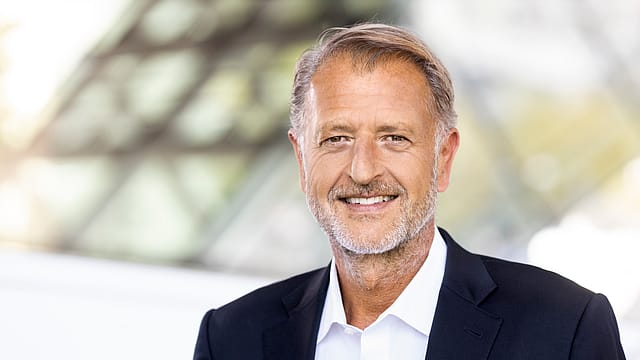Transition to EVs may happen quickly in India: Porsche's Detlev von Platen
ADVERTISEMENT

The transition to electric vehicles (EVs) in a country like India might happen quickly depending on the infrastructure, according to Detlev von Platen, member of the executive board for sales and marketing at Porsche AG.
"Electric mobility will happen at different speeds in different regions. In some regions, this transition will happen quickly while some will take more time but ultimately it will happen," Platen says.
The German sports and luxury carmaker sold 779 cars in India in 2022, up 64% compared with 474 units in 2021. While the Cayenne accounted for over half of its sales, Porsche Taycan battery electric vehicle contributed 10% to the carmaker's overall volumes in the country.
Porsche plans to launch its Macan BEV next year. It will then electrify the Boxster and the Cayenne SUV.
"ICE (internal combustion engine) Macan will be a BEV car soon. Cayenne will continue to be an ICE car for now but ultimately it will also change," says Platen.
"We have a clear commitment to be net carbon neutral by 2030. By the middle of this decade, 50% of Porsche cars will be electrified including plug-in hybrids. By 2030, we expect EVs to account for 80% of our overall sales," says Platen.
The Cayenne BEV is expected to be launched in the second half of the ongoing decade. The carmaker plans to launch another brand new luxurious electric SUV which will be positioned above the Cayenne.
The luxury carmaker is widening its dealer network in India. Porsche currently has 8 dealerships in India. It is eyeing 10 points of sales in the country by 2023-end. It currently covers Tier-1 cities but plans to further extend its network to Tier-2 cities as demand grows. Porsche is also readying its dealership network in India for BEVs.
Platen says he doesn't see India as an emerging market anymore where everything has to be established. "There is really strong momentum in India, the fastest-growing economy in the world. There are tremendous investments in R&D in India. A lot of big companies are interested in India. You see investments in infrastructure," says Platen.
Porsche, however, has no plans to manufacture vehicles in India, says Platen.
Porsche, according to Platen, is not a brand that measures its success by volumes. The luxury carmaker, which has around 4,000-6,000 active customers in India, wants to meet the expectations of these customers in terms of quality and after-sales. "We want to position ourselves as a luxury brand. We do not want to compete in the premium segment. We will continue to be small in terms of volumes," says Platen.
Porsche's biggest markets include the U.S., China and Europe.
About 25-30% of Porsche customers are women, says Platen. "China is an exception where we have almost 50% women buyers," Platen says, adding that China has a much younger target group very similar to India. "Our customers are 10 years younger compared to the rest of the world," he adds.
The automaker is changing the way it is approaching customers by not necessarily going to trade fairs as it used to, says Platen. "We are creating new events not just on cars but also bringing art together," says Platen. The Stuttgart-based automaker, which is celebrating 75 years of its existence, organised one such event in Mumbai earlier this year.
"Luxury is not what you buy, it’s what you buy into," says Platen. This is one of the reasons why the company invests in drive experience centres. Porsche currently has 10 experience centres around the world. These centres come with restaurants, museums, and driving tracks among other things. "The surrounding is important because it is about test-driving Porsche cars in a very safe environment. You can drive on the road and try offroad, something you don’t normally do in cities," he says, adding that Porsche is also considering an experience centre in India.